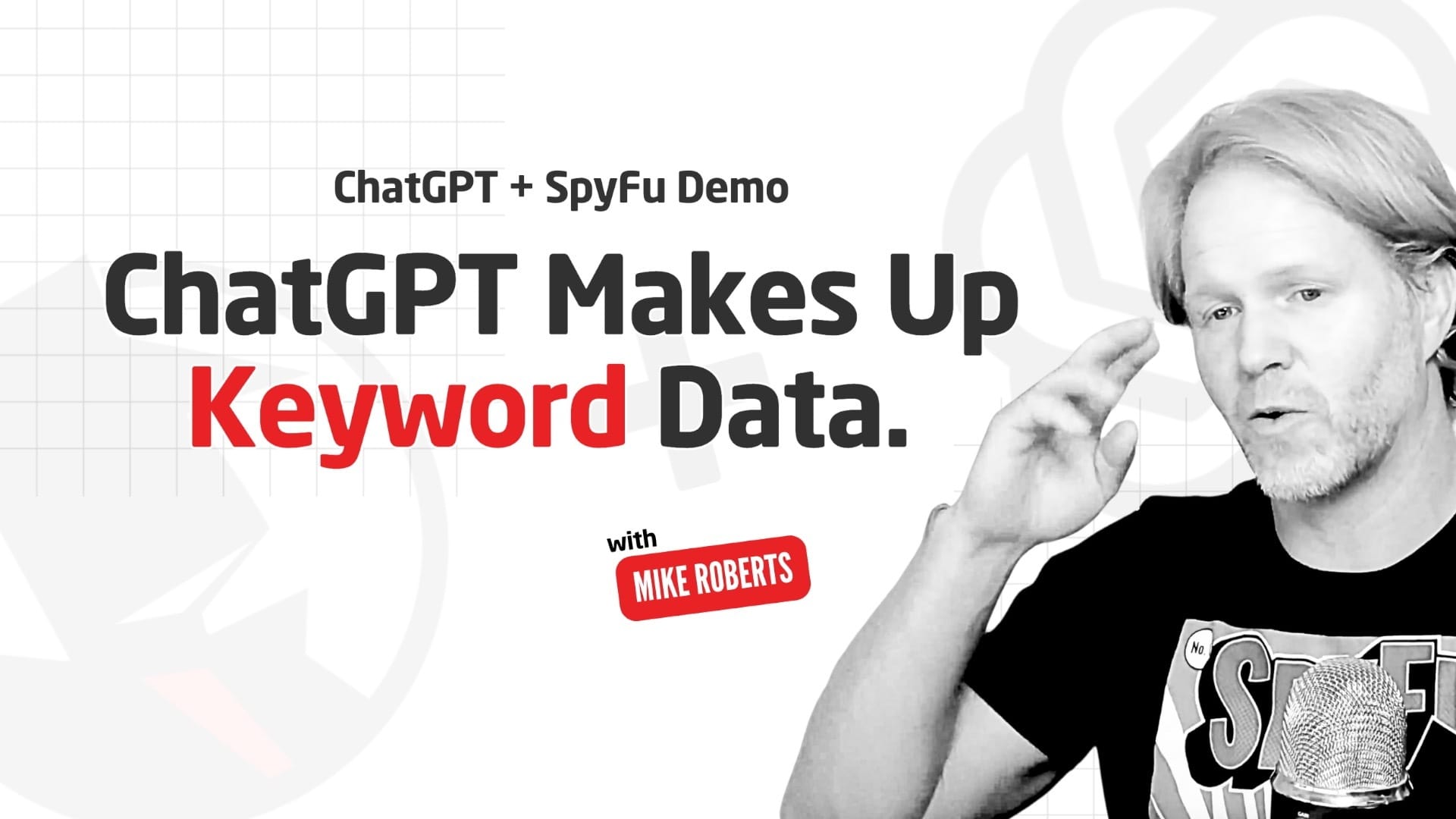If you’re using ChatGPT to do keyword research, you might be making a huge mistake—and not even know it.
ChatGPT is incredible at brainstorming. It’s quick, clever, and great at helping you think of new angles. But when it comes to keyword data, things break down.
And it's not your fault. Things look right.
ChatGPT will give you numbers that look polished, data-ish, and confidently presented—but they’re completely fabricated. It doesn’t have access to real keyword volume or CPC data, and the guesses it makes can steer your campaigns off course in a big way.
And when you’re spending real dollars and building the foundation of growth campaigns, bad data isn’t just a small problem. It’s destructive.
The Problem with Using ChatGPT for Keyword Data
Ask ChatGPT for keyword research, and it will hand back a professional-looking plan with neat little volume and CPC numbers attached. The structure is convincing. The intent analysis often makes sense. It all looks and feels great, but the numbers have no substance to them. They're made up.
One example:
- ChatGPT estimated “custom socks with logo” at 5,000–10,000 searches per month.
- SpyFu and Ahrefs show that it’s more like 700–800 searches.
That’s not a small gap. That’s an order of magnitude off. And it gets worse.
ChatGPT will sometimes suggest keywords that don’t exist at all. In the video, you'll see my example of keywords with parentheses– something that doesn't exist in keyword research or usage--and search volume numbers that it invented.
Even when it does source its data, we've seen it cite articles where someone was writing about hypothetical businesses and their potential keywords. Without access to reliable keyword data (or keyword tools, for that matter) ChatGPT's incredible abilities hit a wall when it comes to data-backed recommendations.
“ChatGPT will give you answers and the answers look correct. And the data looks data-ish… but the data is made up. It’s wildly off, like consistently.”
Where SpyFu GPT Changes the Game
Now let’s flip the script. Give the same prompt to SpyFu GPT, and you get the same sophisticated strategy—but with real data underneath it. Accurate keyword data is our job.
In no way do I want you to take away that I'm anti-ChatGPT. The most important thing I can share is that I want you to root your research in real keyword data. We're making that happen for you. In fact, we're making it easy. SpyFu created a custom GPT to work inside ChatGPT, so you don't have to add plugins or download anything new.
SpyFu GPT connects to live keyword data from SpyFu's API. So instead of imaginary numbers, you’re working with:
- Actual search volumes
- Verified CPC
- Real intent-driven keyword lists pulled from your competitors and your own site
That means when SpyFu GPT reveals that “personalized socks” is the breakout keyword group with 3,200+ monthly searches at under $1 CPC, you can trust it. It’s not a hunch. It’s a real opportunity your campaign can be built on.
Why Bad Data Can Wreck Your Campaigns
The danger with ChatGPT’s made-up keyword numbers isn’t just that they’re wrong. It’s that they shape the entire direction of your campaign.
- Numbers set priorities. When you believe a keyword has 10,000 searches a month, you’ll make it the centerpiece of your ad budget and content strategy. If the real number is closer to 700, you’ve just invested in a dead end.
- It buries the truth. ChatGPT mixes “significantly off” numbers with ones that are closer to reality, so spotting the errors is tricky. You don’t know which data points to trust—which means you can’t trust any of it.
- It misses the real gems. Keyword research is about uncovering patterns and “aha” moments—like realizing that personalization drives demand for socks. That’s the stuff that changes campaigns. But ChatGPT’s fabricated data glosses over those discoveries entirely.
When your campaign’s foundation is shaky, every layer you build on top of it is at risk. Your content plan, your ad spend, and your growth strategy are all too valuable to topple because of the wrong signals. That’s why we feel so strongly about replacing the guesswork with real keyword data.
The Takeaways
- ChatGPT is great at brainstorming. Use it to spark ideas and explore intent.
- Don’t trust its keyword numbers. They’re made up, and they can derail your campaigns.
- Fake data leads to fake priorities. If you’re basing content, ads, and budgets on imaginary numbers, your whole strategy tilts off course.
- SpyFu GPT gives you both. You get ChatGPT’s analysis layered with real keyword data, so the strategy is grounded in reality.

